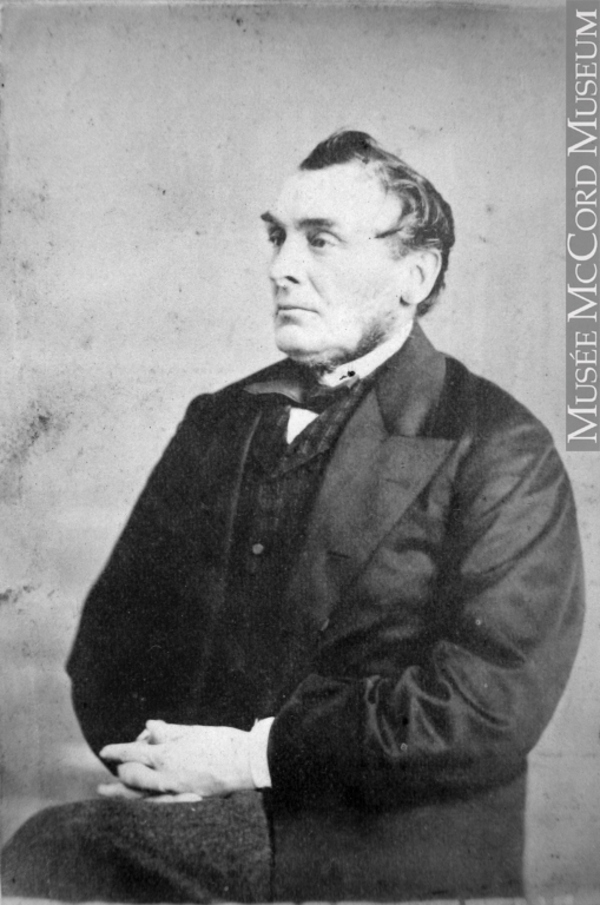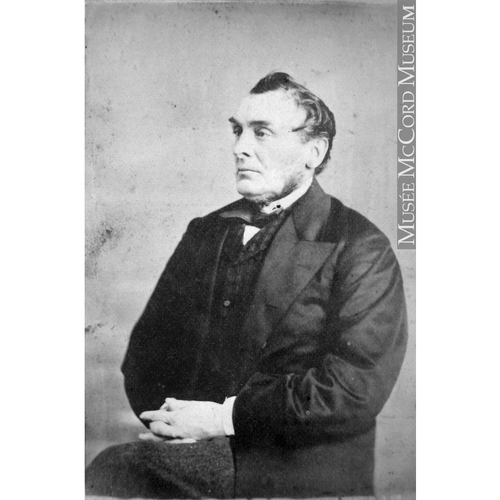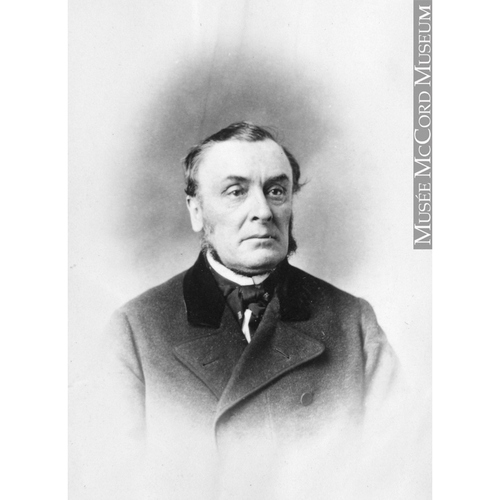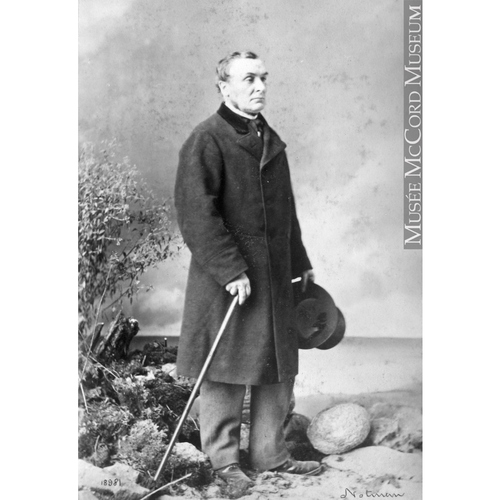
Source: Link
HUTTON, JAMES SCOTT, educator and author; b. 1833 in Perth, Scotland, and baptized there 26 May, son of George Hutton and Ann Scott; m. 21 Sept. 1860 Mary Burton in Edinburgh; they had no children; d. 25 Feb. 1891 in Halifax.
James Scott Hutton began his career as a teacher of deaf-mutes in 1847 when he joined his father, a self-taught specialist, at the Edinburgh Institution for the Education of the Deaf and Dumb. During the following ten years Hutton trained as a teacher, attended classes at the University of Edinburgh, and rose to the rank of second teacher in the institution. In 1857 his employers recommended him to fill the position of principal at the new Halifax Institution for the Deaf and Dumb, a private, non-denominational school administered by a prestigious board of Protestant men and partially funded by the Nova Scotia government. Except for a brief term as principal of a similar institution in Belfast (Northern Ireland) from 1878 to 1882, Hutton would remain in Halifax until his death in 1891.
He began his work in Halifax in August 1857 with nine pupils and $200 worth of equipment and books donated by British well-wishers. Under his direction the school grew steadily (70 students would be enrolled at the time of his death). In 1860 he persuaded his parents and sister to join him in Halifax, and for ten years until his own death George Hutton was a full-time volunteer teacher at the institution. Scott, as he was known to his friends, quickly took advantage of the relief provided by his father’s arrival to return to Edinburgh and marry Mary Burton. She also filled in as a voluntary teacher at the school in Halifax from time to time.
Hutton was an able, imaginative publicist and made the school a popular and fashionable charity. He annually toured Nova Scotia with advanced pupils, successfully recruiting students and financial support. For ten years he lobbied for free education for the deaf, a policy which the province adopted in 1884. Professionally he paid close attention to international trends and debates, and after 1870 he attended a number of conventions of the superintendents and principals of American institutions for the deaf and dumb in the United States and Canada and contributed to the American Annals of the Deaf and Dumb (Washington, D.C.). He produced a number of textbooks for deaf-mutes, some of which were adopted by other institutions.
Early in his career Hutton had been a firm supporter of signing and written language as the only appropriate methods for teaching the deaf, and in 1869 his commitment to this approach was acknowledged by an honorary master’s degree from the recently established National Deaf-Mute College in Washington. By this time he had, in fact, been partly won over to the cause of articulation (speech) and lip-reading and had begun to teach these methods to a few students. In 1875 he recommended that a full-time articulation teacher be added to the staff of the Halifax school, and after his return from Ireland he placed further stress on articulation and lip-reading. Throughout his administration the curriculum of the Halifax school stressed religion and morality, and a concern with practical occupational training that was consistent with the attitudes shared by most Victorian professional educators. By 1890 he had added courses typical of the “new education” movement, including drawing, calisthenics, and clay modelling.
Hutton also supported the causes of educational and religious reform in Nova Scotia. In the early 1860s he had been a founding member of the Halifax Teachers Association and the United Teachers Association of Nova Scotia (later the Provincial Education Association of Nova Scotia), which promoted free public schooling and the professionalization of teaching. He was active in both these associations for 20 years. In 1870 he became an elder at Poplar Grove (later Park Street) Presbyterian Church, where he regularly provided simultaneous translation of services for the deaf. He participated in the deliberations of the Halifax presbytery and the Maritime synod of the Presbyterian Church and contributed to the Presbyterian Witness, and Evangelical Advocate (Halifax): He was also a member of the Chebucto division of the Sons of Temperance.
Personally and professionally James Scott Hutton was an exemplary evangelical Protestant reformer, warmly supported by his board of directors at the Halifax Institution for the Deaf and Dumb, admired by successive legislative committees, and beloved by many of his students.
Halifax County Court of Probate (Halifax), Will of J. S. Hutton, 1891. PANS, RG 14, 69, no.1. Halifax, Institution for the Deaf and Dumb, Report, 1857–82. N. S., House of Assembly, Journal and proc., reports of the committee on humane institutions and of the Institution for the Deaf and Dumb, 1880–91; Statutes, 1884, c.15. Morning Chronicle (Halifax), 28 Feb. 1891. Presbyterian Witness, and Evangelical Advocate, 28 Feb. 1891.
Cite This Article
Janet Guildford, “HUTTON, JAMES SCOTT,” in Dictionary of Canadian Biography, vol. 12, University of Toronto/Université Laval, 2003–, accessed April 26, 2025, https://www.biographi.ca/en/bio/hutton_james_scott_12E.html.
The citation above shows the format for footnotes and endnotes according to the Chicago manual of style (16th edition). Information to be used in other citation formats:
| Permalink: | https://www.biographi.ca/en/bio/hutton_james_scott_12E.html |
| Author of Article: | Janet Guildford |
| Title of Article: | HUTTON, JAMES SCOTT |
| Publication Name: | Dictionary of Canadian Biography, vol. 12 |
| Publisher: | University of Toronto/Université Laval |
| Year of revision: | 1990 |
| Access Date: | April 26, 2025 |





